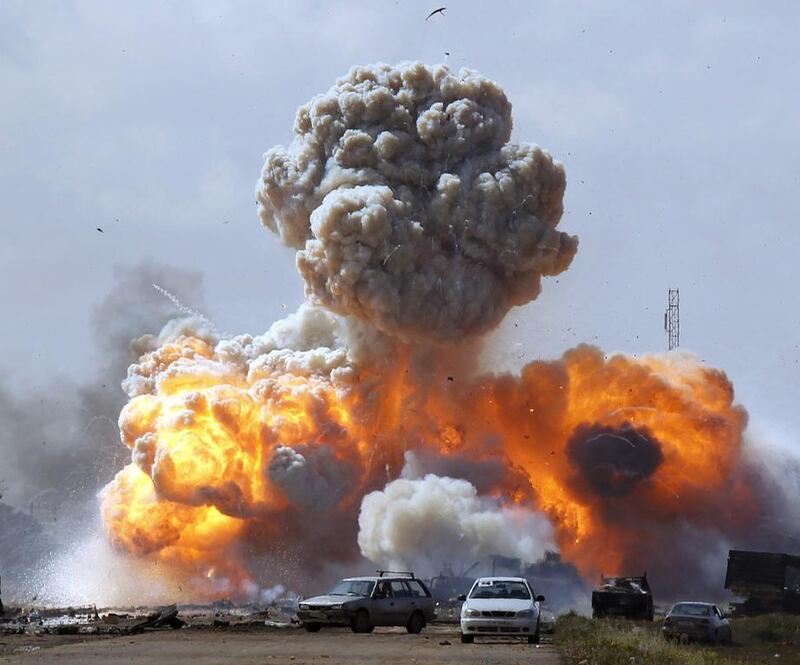The UK’s House of Commons foreign affairs select committee this week released its report on the UK’s 2011 military intervention in Libya. The report is significant and in many ways it is commendable, but it is also critically flawed.
From the outset it ought to be noted that the very existence of this committee is something to celebrate. It is a cornerstone of Britain’s parliamentary democracy that select committees of this nature are able to question the executive, often requiring ministers to be cross-examined.
It’s not something to be taken for granted – the freedom of a society is directly related to the ability of the ordinary citizen to hold leaders to account. The value of the free and open ability to speak truth to power should never be underestimated.
The best scrutiny, nevertheless, is that based on full information and in this regard, the inquiry showed some rigour, but also some flaws.
The UK’s failings in Libya relate primarily to the way that engagement took place, and secondly to how the intervention was pursued. In this regard, the committee raises vital and decisive questions about the preparedness and informed nature of Westminster when it came to Libya. All of this is important when considering British policy in the region beyond Libya – not just over the last few years, but in the future.
But a crucial flaw, one that bears interrogating further, is the underestimation the report makes of former leader Muammar Qaddafi himself, the threat he posed to Libyan civilians and the likelihood that he would have reformed given the right political pressure.
It is astounding to see in the report, for example, that Qaddafi’s “threat to civilians was overstated”. Those on the ground in Libya in 2011, whether pro- or anti-Qaddafi, would have found such a claim rather peculiar. He was a brutal dictator, and the way in which his forces responded to the revolutionary uprising in 2011 bears that out.
Qaddafi had seen both of his neighbours – Tunisia to the west and Egypt to the east – remove their rulers from power following mass protests.
Libyans en masse were under no illusion about what Qaddafi intended to do in Benghazi in February 2011 – some of them supported the brutal crackdown, and some of them opposed it. But the threat he posed should not be underestimated.
Regionally, as well, there was hardly much doubt expressed about the seriousness of the threat Qaddafi posed to civilians who opposed him.
It was for that reason the Arab League backed the military intervention in Libya. But here the committee perhaps failed to emphasise a particular point – that if military intervention of any kind was necessary, it really ought to have been a responsible and competent Arab force leading it. Alas, this is a continual problem for the region – there is no capable and accountable Arab counterpart to Nato for the region.
Another crucial failing of the committee’s inquiry is ironic, considering that it correctly called into question the depth of nuanced knowledge that Westminster had in Libya.
Of all the witnesses who were called to give evidence in person at the inquiry, none were Libyan. Evidence of any kind from most of the foremost analysts on Libyan affairs was absent altogether. Only a precious few of those who gave evidence had spent substantial time in Libya.
In 2011, Libyans rose up against a brutal regime. Their leader should have listened to them and engaged with their demands, instead of rewarding them with bullets. Even in the grave, he bears a huge responsibility for that.
The region should have come to their aid, but Arab solidarity did not result to very much in substantial terms – an issue that will continue to harm the region in the years to come.
Did Nato intervene in the best possible fashion? No, it didn’t. There were mistakes made and wrongs committed. There might have been other ways to proceed that differed from the path in 2011, and the UK’s executive powers should be questioned about that without reluctance or reticence.
Was post-Qaddafi reconstruction handled appropriately? No, it wasn’t – and there are many responsible for that, including Libyans themselves, and Whitehall should also ask hard questions about its own conduct and preparedness in that regard.
But to overestimate Qaddafi’s propensity to reform and simultaneously underestimate the threat he posed to his own people is profoundly unsound. That is simply immensely disrespectful of the sacrifices the Libyan people made in 2011, and continue to make now.
Dr HA Hellyer is a senior non-resident fellow at the Atlantic Council in Washington and the Royal United Services Institute in London
On Twitter: @hahellyer





